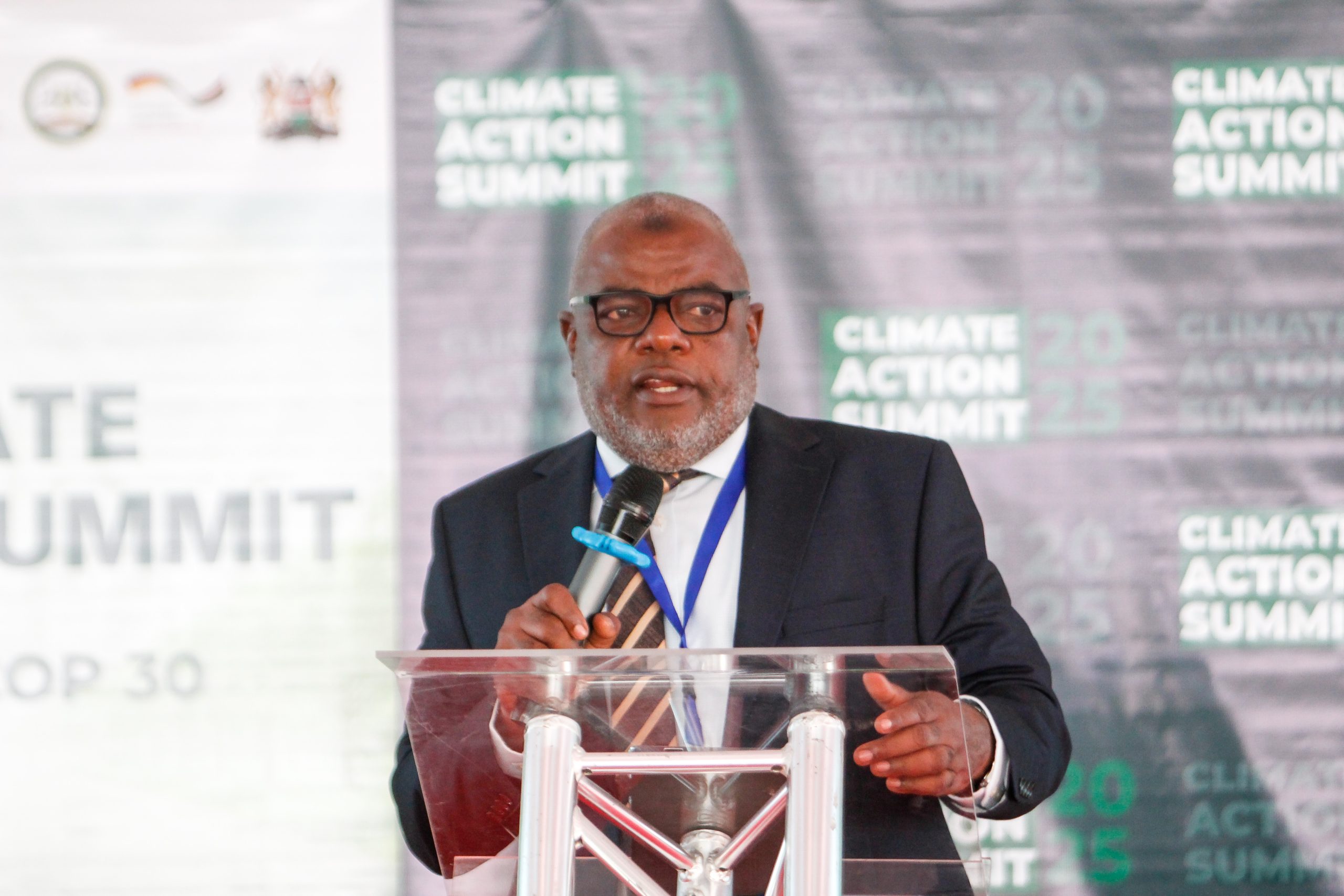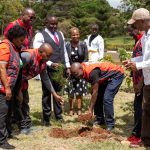Senator Faki Mohamed Mwinyihaji, Chair of the Senate Committee on Lands, Environment and Natural Resources.
By Peace Muthoka.
Nairobi, Kenya – Wednesday, October 30, 2025: Day Two of the 2025 Climate Action Summit in Nairobi brought together leaders from the judiciary, legislature, and civil society to discuss how good governance, justice, and local empowerment can drive Kenya’s climate resilience.
Speakers emphasized the need for coordinated, well-financed, and inclusive climate action rooted in strong institutions, community ownership, and innovation driven by devolution.
Hon. Justice Oscar Angote, Principal Judge of the Environment and Land Court, underscored the judiciary’s critical role in advancing climate justice and protecting the constitutional right to a clean and healthy environment.
“The courts have a duty not only to protect the right to a clean and habitable environment but also to uphold the dignity and livelihoods of communities affected by climate change,” said Justice Angote. “As we transition toward a low-carbon and climate-resilient future, we must not lose sight of our constitutional duty to protect the rights of vulnerable and indigenous populations. Climate action must go hand in hand with human rights protection.”
Justice Angote reaffirmed the judiciary’s commitment to inclusion and accountability, ensuring that climate-related policies align with the Constitution’s vision of social justice. He also stressed the importance of preserving green spaces and riparian lands, describing them as “lifelines for biodiversity, livelihoods, and human well-being.”
He called for enhanced civic education to empower citizens to understand and defend their environmental rights. “Judicial oversight must ensure that development never comes at the cost of ecological balance or the rights of marginalized communities,” he said.
Senator Faki Mohamed Mwinyihaji, Chair of the Senate Committee on Lands, Environment and Natural Resources, highlighted devolution as the cornerstone of Kenya’s climate response.
“Counties must not be passive recipients of national policy they must be leaders and innovators in local climate solutions,” he said.
He cited examples such as community biogas projects in Nyandarua and the challenges of coastal erosion in Mombasa and Lamu, noting that climate change respects no boundaries and demands strong inter-county coordination.
Senator Faki outlined the Senate’s priorities for devolved climate action: strengthened coordination between national and county governments, predictable and transparent climate financing, accountability to ensure resources reach communities, and community-led green energy and resilience projects that create jobs and sustain livelihoods.
“Devolution is Kenya’s greatest strategic advantage in the climate era,” he said. “It allows us to respond locally, coordinate nationally, and lead globally. Our devolved system should stand as a model of inclusive and accountable climate governance.”
Bishop Margaret Wanjiru, Chairperson of the Nairobi Rivers Commission, emphasized that community participation lies at the heart of sustainable river and ecosystem restoration.
“At the heart of river regeneration lies community ownership. No project can endure without local participation and shared responsibility,” she said.
She explained that the Commission’s Nairobi Rivers Regeneration Master Plan integrates community livelihoods by transforming informal activities along Grogan, Gikomba, and Kamukunji into organized, sustainable market spaces.
“We are not displacing communities; we are formalizing them,” Bishop Wanjiru said. “True sustainability comes when the same people who champion regeneration efforts become beneficiaries of the development outcomes.”
Her remarks resonated with youth and community representatives, who applauded the call for inclusive planning to ensure those driving restoration efforts also benefit from its social and economic gains.
As Kenya prepares to take part in COP30 in Belém, Brazil, speakers reaffirmed the nation’s commitment to climate justice, devolution, and people-centered action.
The Climate Action Summit, jointly convened by the Nairobi Rivers Commission and the Kenya School of Government, continues tomorrow with discussions on climate financing, innovation, and private sector partnerships.










